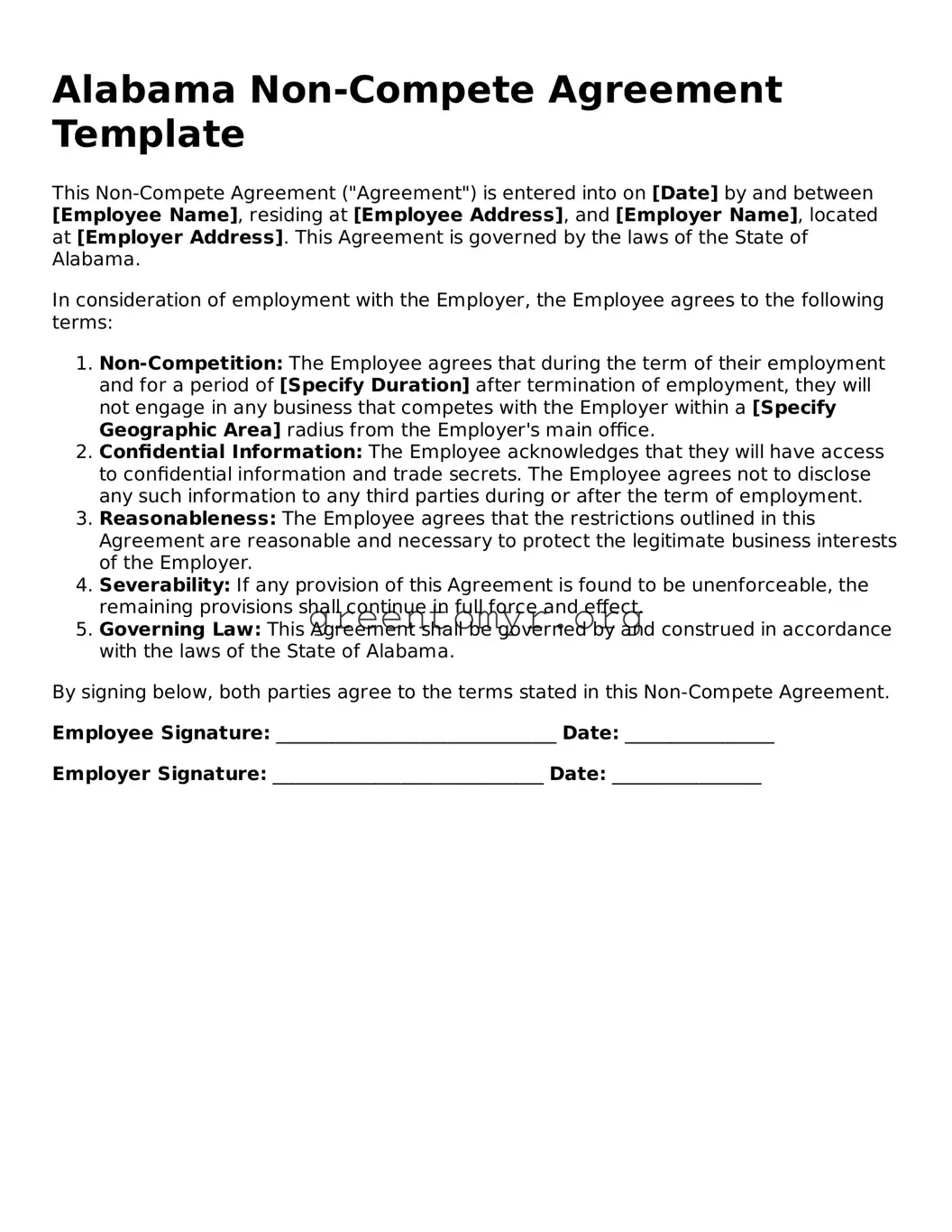What is a Non-compete Agreement in Alabama?
A Non-compete Agreement is a legal contract between an employee and employer that restricts the employee from engaging in activities that compete with the employer's business for a specified period of time and within a defined geographic area. In Alabama, such agreements are enforceable under certain conditions. Parties involved must ensure that the agreement is reasonable in terms of duration, geographic scope, and the business interests it protects.
Are Non-compete Agreements enforceable in Alabama?
Yes, Non-compete Agreements are enforceable in Alabama, but they must satisfy specific criteria. The agreement must be limited in time and geographic area, and it should protect legitimate business interests, such as trade secrets or customer relationships. If an agreement is overly broad or unreasonable, a court may decide to invalidate it.
What factors do courts consider when evaluating a Non-compete Agreement?
When assessing the enforceability of a Non-compete Agreement, courts typically consider the following factors:
-
Reasonableness of the time frame in which the restriction applies.
-
The geographic area covered by the agreement.
-
Whether there are legitimate business interests being protected.
-
The nature of the employee’s duties and their access to confidential information.
How long can a Non-compete Agreement last?
The duration of a Non-compete Agreement in Alabama should be reasonable to be enforceable. Generally, courts have upheld durations ranging from six months to two years, depending on the circumstances of the business and the employee's position. However, longer restrictions may be scrutinized and potentially deemed unreasonable.
What geographic limits should be considered?
The geographic scope of a Non-compete Agreement must also be reasonable. It should cover only the areas where the employer has a legitimate business interest. For example, if a company operates primarily within Alabama, a restriction to that state might be acceptable, whereas a national restriction could be seen as excessive.
What if I have signed a Non-compete Agreement and want to leave my job?
If you have signed a Non-compete Agreement and are considering leaving your job, it’s crucial to review the terms thoroughly. Seek legal advice to understand your rights and the potential implications of breaking the agreement. Legal counsel can provide guidance based on your specific situation and help you weigh your options.
Can a Non-compete Agreement be modified or terminated?
Yes, a Non-compete Agreement can often be modified or terminated through mutual consent of both parties. This typically requires drafting a new agreement or an addendum to the existing one. It’s advisable to consult with a legal professional to ensure that any modifications are legally binding and clear to all parties involved.
